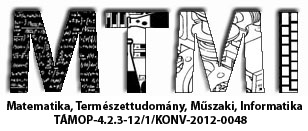Serum sclerostin levels in healthy men over 50 years of age.
Abstract data
Aim: The aim of this study is to evaluate the relationship of serum sclerostin levels with age, cystatin C, bone mineral density (BMD) and biochemical markers of bone turnover in healthy Hungarian men over 50 years of age.
Methods and Patients: We determined serum levels of sclerostin and examined its relationship to age, cystatin C, osteocalcin, C-terminal telopeptides of type-I collagen, procollagen type 1 amino-terminal propeptide, 25-hydroxyvitamin D, parathyroid hormone, and L1-L4 (LS) and femur neck (FN) BMD data available from 194 randomly selected ambulatory men belonging to the HunMen cohort.
Results: In the study population as a whole (n = 194; age (median, range): 59 (51-81) years), statistically significant correlation was found between sclerostin and age (r = 0.211; p = 0.003), cystatin C (r = 0.246; p = 0.001), FN BMD (r = 0.147; p = 0.041) and LS BMD (r = 0.169; p = 0.019). Compared to middle-aged men (age: ≤ 59 years, n = 98), elderly men (age > 59 years, n = 96) had significantly higher serum sclerostin levels (67.8 ± 15.9 pmol/L vs. 63.5 ± 14 pmol/L; p = 0.047). Among men with normal (T score > -1.0) FN BMD, the elderly had significantly higher serum sclerostin levels as compared to the middle-aged (70.4 ± 17 pmol/L vs. 63.9 ± 11.5 pmol/L; p = 0.019). Furthermore, among the elderly cystatin C was the only significant predictor of serum sclerostin levels (standardized regression coefficient (β) = 0.487; p < 0.001).
Conclusion: In the studied healthy elderly cohort, this study reports significant increase in sclerostin levels with increasing age and deteriorating kidney function as determined by plasma cystatin C levels.
Támogatók: Támogatók: Az NTP-TDK-14-0007 számú, A Debreceni Egyetem ÁOK TDK tevékenység népszerűsítése helyi konferencia keretében, az NTP-TDK-14-0006 számú, A Debreceni Egyetem Népegészségügyi Karán folyó Tudományos Diákköri kutatások támogatása, NTP-HHTDK-15-0011-es A Debreceni Egyetem ÁOK TDK tevékenység népszerűsítése 2016. évi helyi konferencia keretében, valamint a NTP-HHTDK-15-0057-es számú, A Debreceni Egyetem Népegészségügyi Karán folyó Tudományos Diákköri kutatások támogatása című pályázatokhoz kapcsolódóan az Emberi Erőforrás Támogatáskezelő, az Emberi Erőforrások Minisztériuma, az Oktatáskutató és Fejlesztő Intézet és a Nemzeti Tehetség Program



